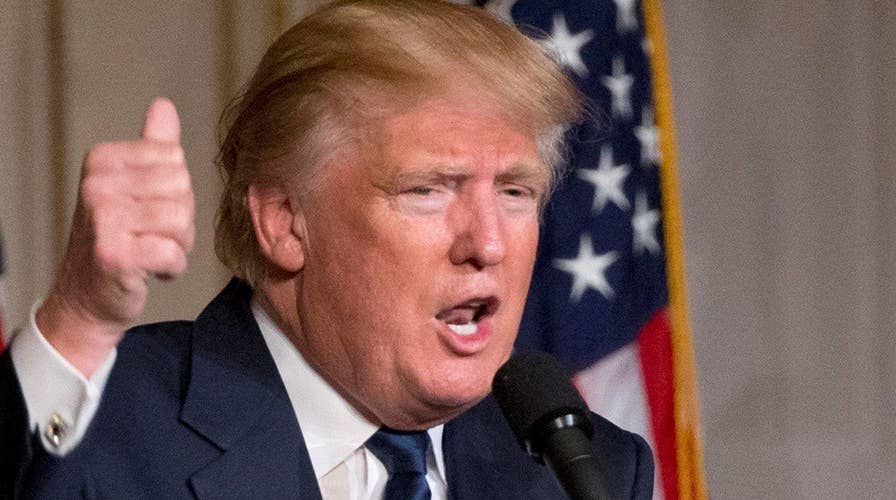Donald Trump faces skeptical audience at AIPAC
Republican presidential frontrunner set to deliver major policy speech on the Middle East
Montana Republicans are asking the U.S. Supreme Court to step in as early as this week and force the state to “close” its upcoming primary so only GOP voters can participate -- in a case that could pose complications for Donald Trump.
The Republican front-runner so far has done better in "open" primaries, where members of both parties can vote, than in "closed" primaries limited to Republican voters only.
Montana, set to vote June 7, has had an “open primary” since 1912.
But state GOP officials want to change all that, in a bid to keep out Democrats and other “cross-over” voters who might sway the outcome. They argue keeping the primaries open infringes on their constitutional right of association.
“This is a First Amendment right,” state Republican Party lawyer Matthew Monforton told FoxNews.com.
He said the looming primary is particularly important because it would allow people to flood the system in an incredibly close Republican race. If the system is left unchecked, Monforton believes outside groups could unfairly influence the state’s winner-take-all primaries, where Montana’s 27 presidential delegates are up for grabs.
While the primary is set for June, it's possible the race will still be competitive at that point -- though Trump on Monday voiced confidence in his ability to get the 1,237 delegates needed to clinch the nomination.
Montana’s Republican Party filed the original lawsuit in 2014, but escalated the matter to the Supreme Court earlier this month. On March 11, Monforton filed an emergency injunction to the court seeking to block non-GOP voters from participating in the upcoming primary.
“Without relief from this court, non-members and Democratic-aligned institutions will soon exploit Montana’s open primary and seek to nominate Republican candidates opposed by the majority of Republican voters,” Monforton wrote.
In a rare one-sentence order Wednesday, Supreme Court Justice Anthony Kennedy asked Montana Attorney General Tim Fox, a Republican, to respond to Monforton’s appeal of a lower-court order, which denied his request to block the June primary for Republicans in Montana.
Fox has until Tuesday to respond.
Monforton dismissed Fox, calling him “a liberal Republican” whose political ambitions are what’s driving his refusal to close the state GOP primary.
Calls to Fox for comment were not immediately returned.
Currently, Montana primary voters are free to choose either a ballot that only lists Republican candidates or one that lists Democratic candidates. No proof of party affiliation is required, and voters can request both parties’ ballots. They cannot vote in both, but no one is asked which ballots they ultimately choose.
The unexpected move by the Supreme Court to weigh in last week has given Monforton’s case much-needed momentum.
“We were certainly pleased,” Monforton told FoxNews.com of the Supreme Court’s response. “These emergency applications are the longest of long shots.”
It claimed the open primary violates its First Amendment freedom of association rights by allowing non-party members a vote and thus setting up a scenario where nominees are not chosen by a majority of Republicans.
Though the case pre-dates Trump's entry into the race, Monforton believes the current open system would help Trump -- and a closed primary would aid his top rival, Texas Sen. Ted Cruz.
Indeed, Trump does seem to be doing better in open Republican primaries than his opponents. The New York businessman has come out ahead in 13 out of 16 states with open primaries including Massachusetts, North Carolina and Illinois. In states with closed primaries like Nevada, Florida and New Hampshire, Trump has taken the top prize in only six out of 14 states.
The outcome of the Montana challenge also could have an impact in state races. This year, 40 Republican legislatives races in the state have contested primary elections. Many feature tough matchups between conservatives and moderate candidates -- who could attract “cross-over” voters in an open primary.
FoxNews.com's Barnini Chakraborty contributed to this report.





